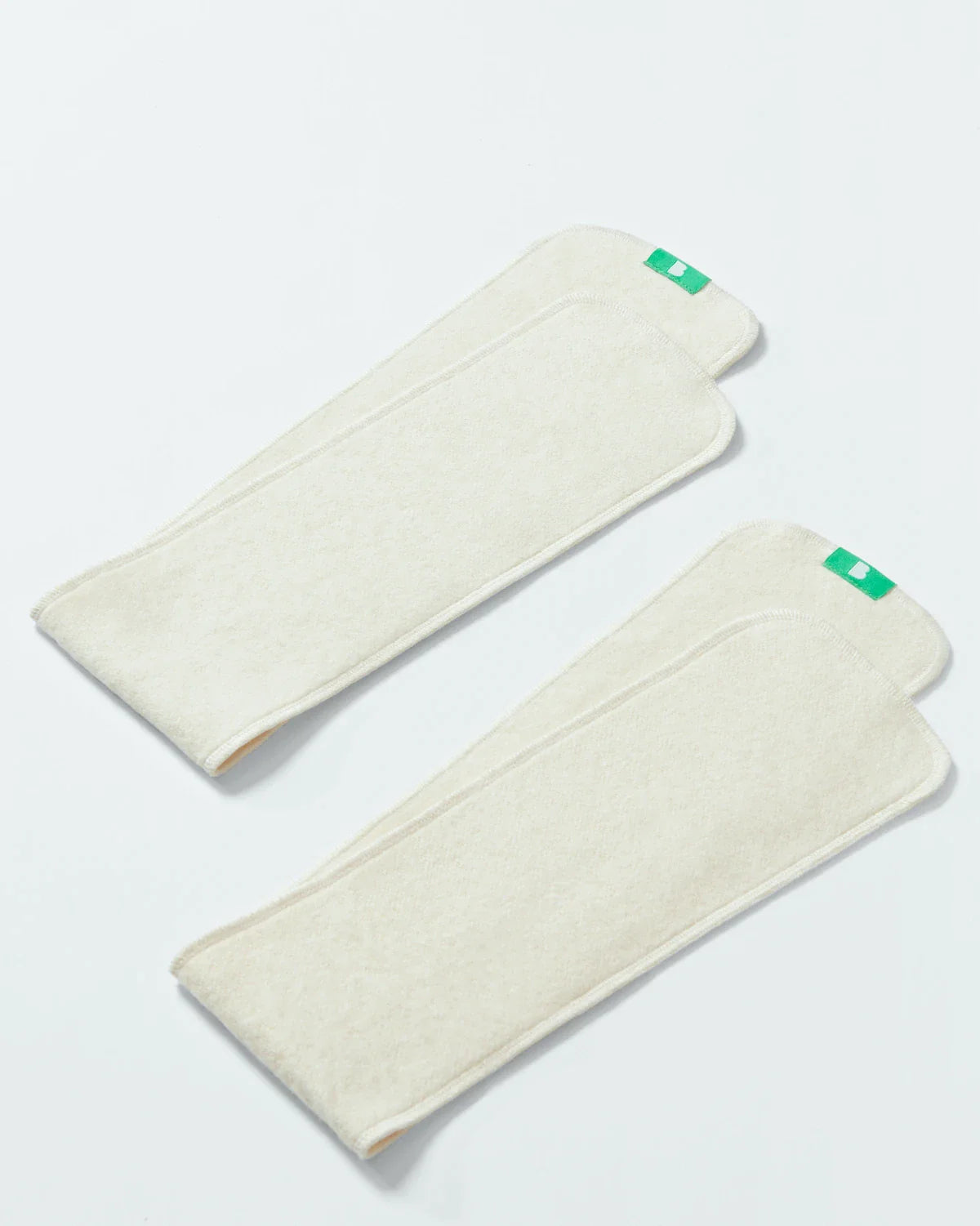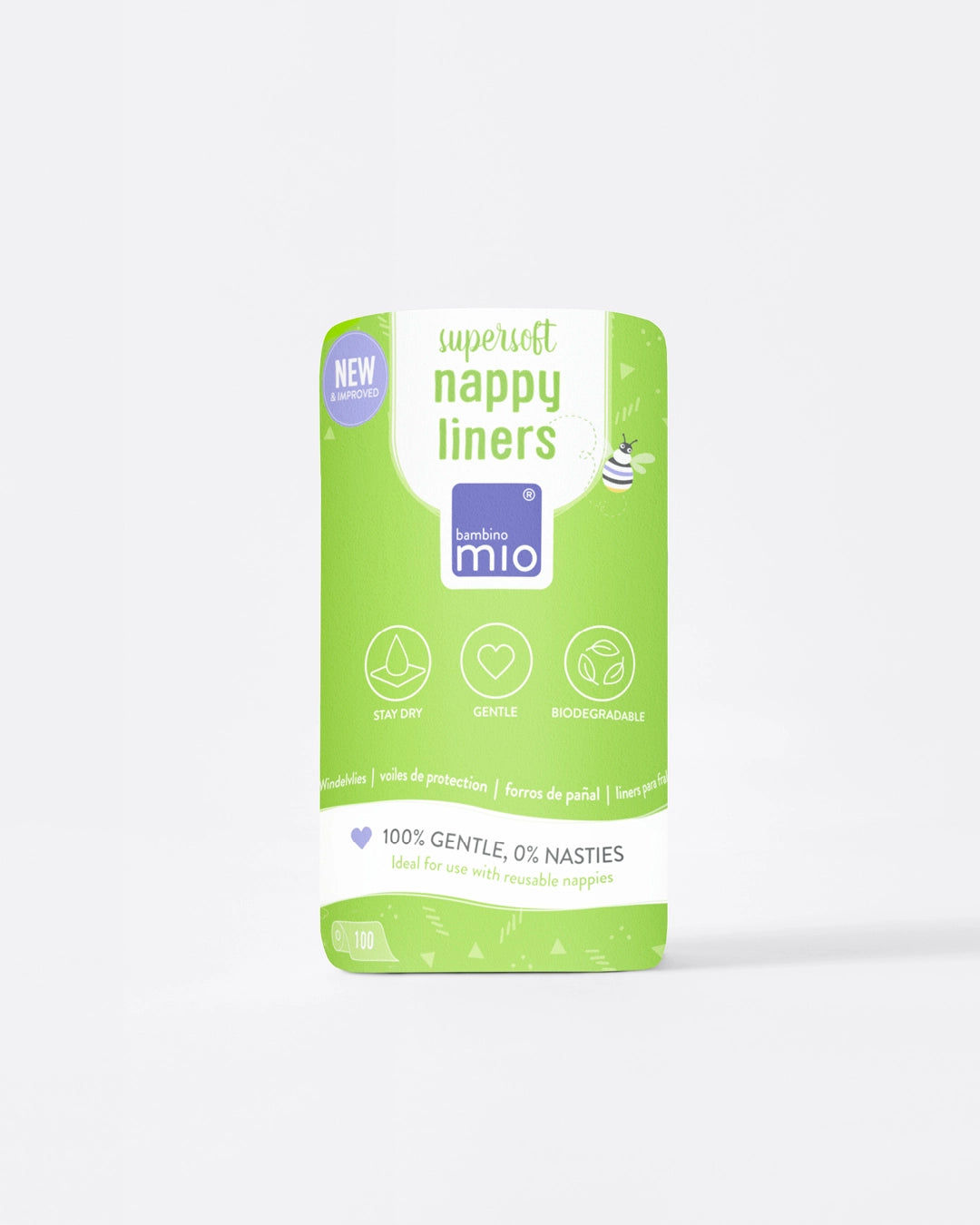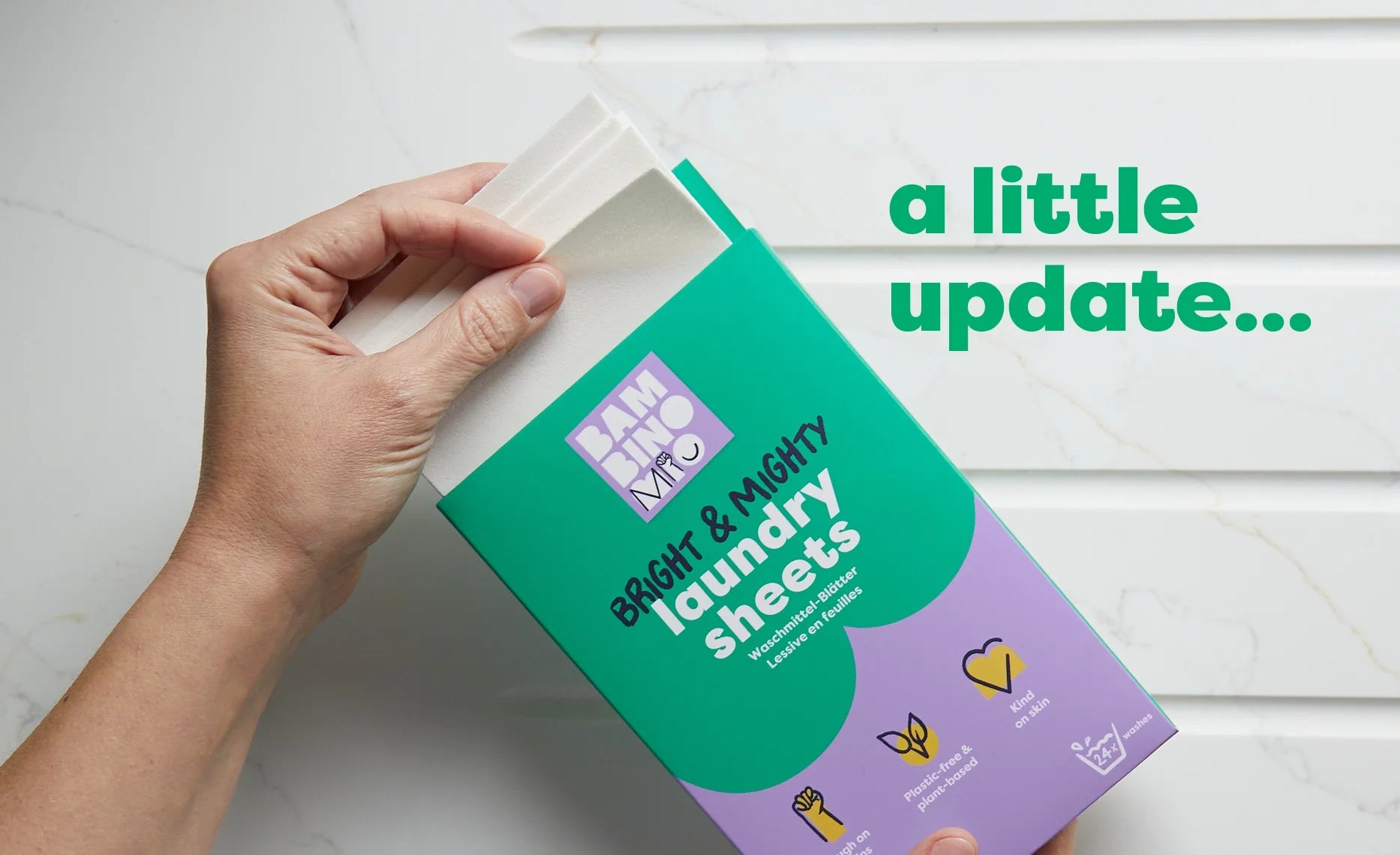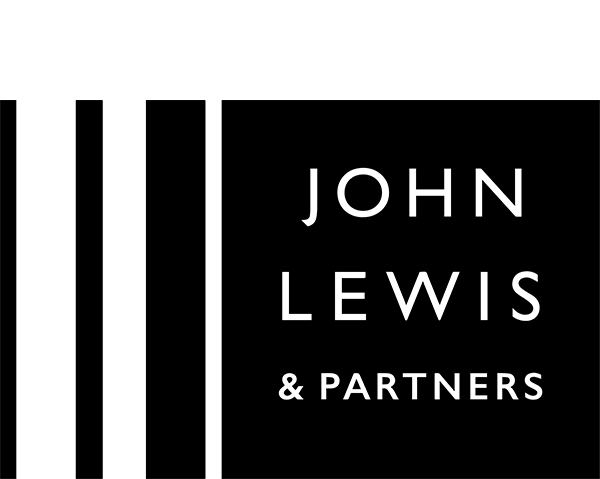How to Bond With Your Baby
Share Options
- Bambino Mio
- 16 / 10 / 2023
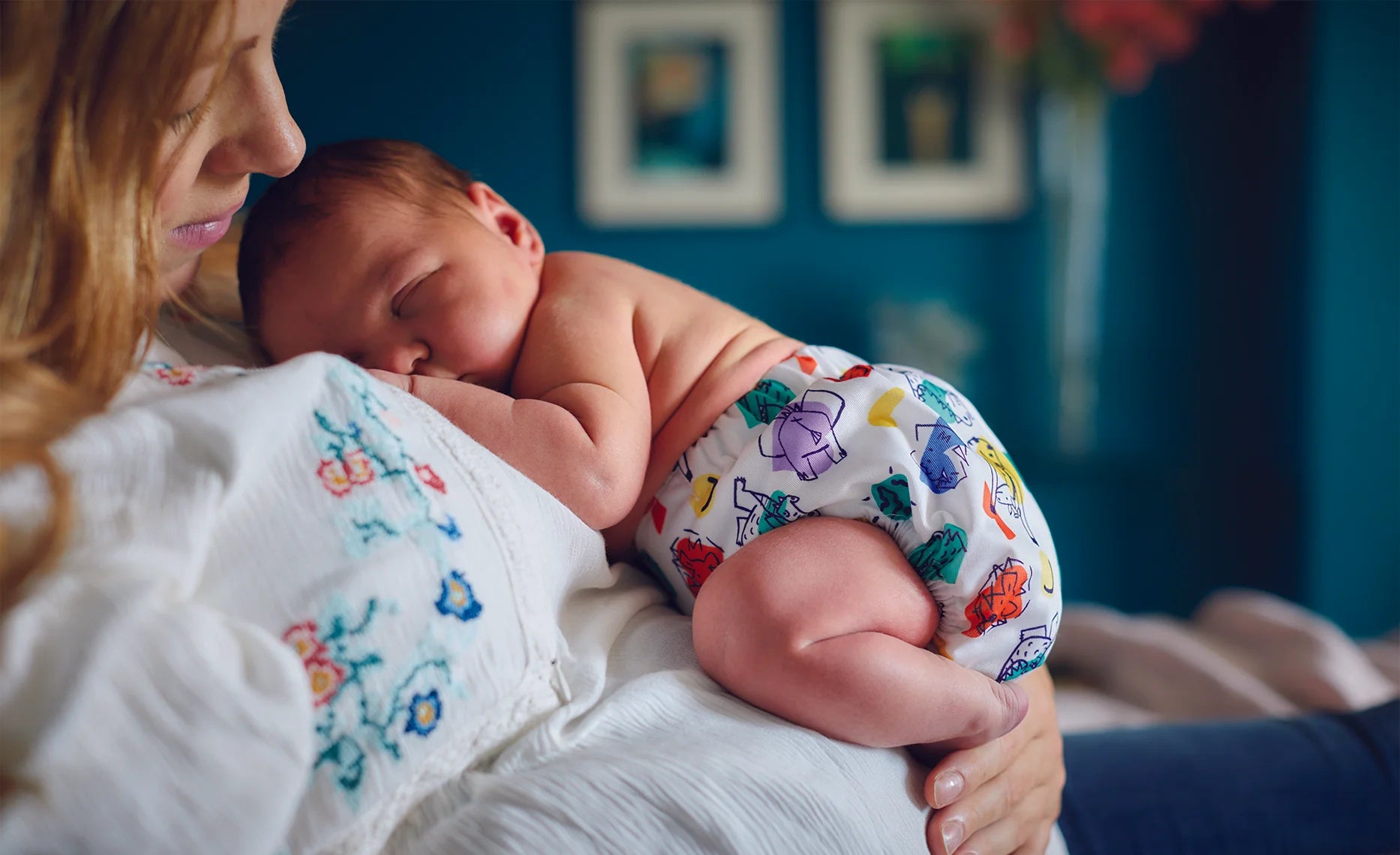
Inside this Article:
- Promote secure attachment
- Keep your baby close to you
- Keep your baby safe
- Get to know your baby
- Building that strong bond
- How your baby will respond to you
- It’s important to spend time with your baby just…doing nothing
- What to do when your baby’s crying
- Encourage your baby to bond with other people
- As your baby grows they’ll need more people in their life
- Citations and References
Bonding with your baby is probably one of the things you’re looking forward to the most and it can be a joyous and very special time.
Bonding is also a very important process for you and your baby, as well as for your baby and their wider family as it’s the start of their social journey and can influence their future relationships.
The way in which you bond with and care for your baby helps to shape their personality and brain (1), so taking the time to create a strong bond will have lasting benefits for your baby.
Here’s what you need to know about bonding with your baby.
Promote secure attachment
Giving your baby responsive care (2), which means you respond to them as soon as possible, this helps them to feel secure and to develop healthy relationships with their carers.
Simply spending time with your baby is enough to offer responsive care and to create a strong bond.
Keep your baby close to you
New babies need to be physically close to you as you’re essentially their life support system. Holding your baby, talking to them and offering comfort whenever they need it is vital as it will:
- Make them feel happy and secure, which will carry over into later childhood and adulthood
- Stimulate hormones in your body and your baby’s body which help you both to feel rewarded, calm and confident
Keep your baby safe
Attachment helps your baby to feel safe, which is vital for their physical, emotional and mental development. Making sure your baby is fed, warm, clothed, protected from harm and loved is pretty much all you need to do to make your baby feel safe.
Get to know your baby
You already started to build a relationship with your baby before they were born and this process gathers pace after they actually arrive. Bonding is a two-way process as your baby will find ways to communicate with you and you’ll learn to understand their cues.
As you grow to understand each other more, your relationship will grow stronger. You’re curious about your baby and what their character is like and your baby is also curious about you and wants to bond with you.
Don’t worry about being a perfect parent because, let’s face it, as long as you turn up, deliver milk and maintain a clean bum, you’re golden. Your baby will love you just as you are, so don’t tire yourself out - there’s all the time in the world for piano lessons and fingerpainting…
Building that strong bond
There are so many ways in which you can forge a strong bond with your baby, such as:
- Focusing on their face and copying their facial expressions
- Copy any noises they make
- Sing rhymes to your baby
- Play peek-a-boo
- Wear your baby in a sling and go about your day, talking at least some of the time
How your baby will respond to you
Babies prefer to look at faces rather than objects at first and are primed to interact with other humans from the get go. Your baby’s eyes can only focus to around 20cm (8in) from their face, which is just (handily enough) about the distance to your face when you’re cuddling or feeding them.
Your baby will:
- Recognise your voice, as they were able to hear you from around 24 weeks of pregnancy
- Turn their face towards you and gaze at you
- Recognise your smell, especially the smell of your milk if you’re breastfeeding
By gazing at, talking to and smiling at your baby, you’re teaching them how to interact with other people.
It’s important to spend time with your baby just…doing nothing
Just being with your baby is enough to create a bond. You can talk to them when they’re awake and wait for a response, which might be a more direct gaze or even a few mouth movements to imitate yours.
Try not to use your phone while your baby’s awake - you should focus on them as much as possible, although seeing photos of people and animals is great fun for older babies.
What to do when your baby’s crying
Babies cry and making sure that you respond really helps to build up trust and feelings of security. Comforting a crying baby is not “spoiling” them at all, it’s essential for their development.
It can be tough to deal with a lot of crying, but it’s one of the few ways your baby can communicate their needs to you. Find out how to help your baby when they’re crying and how to help yourself to cope here (3).
Encourage your baby to bond with other people
The people around you, from your partner and family to the man in the corner shop, all have a role to play in your baby’s life so it’s important to create relationships between them all.
Babies like to see people who look different to you and who communicate in different ways, so introduce your baby to other family members first and then expand their social circle bit by bit.
As your baby grows they’ll need more people in their life
To start with, you, their primary carer, are all that matters, but as your baby grows and can see better, they’ll branch out to other family members, siblings and friends.
Other people can offer your baby different experiences and sounds, as well as a different face and smell. Being able to bond with others is the next stage in your baby’s development, as it’s a skill which will last them a lifetime.
Citations and References
(1) National Institutes of Health (NIH). National Library of Medicine. ‘The Importance of Early Bonding on the Long-term Mental Health and Resilience of Children.’ 2016. Web. www.ncbi.nlm.nih.gov/pmc/articles/PMC5330336/
(2) World Health Organization (WHO). ‘Improving Early Childhood Development: WHO Guideline.’ Web. cdn.who.int/media/docs/default-source/mca-documents/child/q-a-on-child-care.pdf?sfvrsn=f27277c1_2
(3) National Health Service (NHS). ‘Caring for Your New Baby. Crying.’ 2023. Web. www.nhsinform.scot/ready-steady-baby/early-parenthood/caring-for-your-new-baby/crying

























